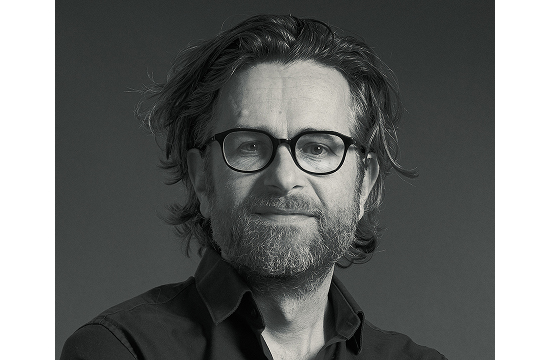
Enough of the Keepy Uppy with Tech

When it comes to using buzzwords like data and tech, a lot of agencies focus more on ‘keepy uppy outside the stadium’ than truly helping brands. Time to burst the bubble, says Cheil Amsterdam’s ECD Thijs de Boer.
Advertising is the most opportunistic profession in history – nothing new here. However, this opportunism seems to quite successfully reinvent itself every time.
When I first entered advertising, it all began with blind ‘creative opportunism’. Every year, a few months before the festival season, the creative department would get into a nervous frenzy. Everywhere you looked, 1:1’s fell from the sky; for shampoo, glue, beer, aspirin, clients or non-clients – it really didn’t matter. Creative masterpieces that you had to sell to the client before the December 31st, or rather, get their permission for placement.
But no worries, not that anyone would ever see the ad anyway, because it would end up in the most silly, obscure magazine imaginable – otherwise the CFO wouldn’t allow it. And a few months later, fingers crossed for a #proud moment on a festival podium. It could make creative careers and agency reputations, but it never helped any brand in any way. That didn’t really bother me though - I wasn’t a brand, and I could use the awards.
One person who’d already won enough awards - my then creative director and one of the best creative strategic thinkers of that time - Wim Ubachs, put it quite brilliantly as ‘keepy uppy outside the stadium’. Shining for your creative friends, in the shadow of the real game.
The rise of tech opportunism
I don’t know whether or not is was because of the crisis, but the blind creative opportunism eventually became layered with a rather opaque ‘do-gooder opportunism’. Good causes always have been very good for agency reputations, but for me it got to a point where it became dubious. If we didn’t have a client with a cause, we’d find one. The world is full of oppressed, dispossessed or diseased minorities. Just fund your own solution that is as creative as it is temporary, and you’d have yourself an agency campaign. Great for the people who might have got a little help from it, but when you saw the deliriously happy agency team gleaming on the podium, you couldn’t help but wonder who it really all was for.
And although there’s still a lot of that do-gooder opportunism around today, now we see ‘tech opportunism’ layered on top of that. Tech, or data – whatever - is hot, sexy. Tech sounds complicated, but hugely modern, thus: interesting. Tech shows you’re new school. Tech wins awards. Now the formula is a good cause plus technology and data, wrapped in an opportunistic creative idea, equals awards. Don’t get me wrong, I’ve got nothing against tech or data; in fact, I’m all for it. But like a good creative idea - it has to genuinely help a client and/or consumers. But how many times have we seen that good old ‘outside stadium keepy uppy’ that’s obviously meant to promote the agency rather than the client’s brand?
Data has always been here
Data first of all. What are we talking about, exactly? Big data management platforms that over-target consumers with a small return on investment. Huge analytic solutions producing reports that are never looked at. For how long will we continue; until we see what it really is and what it delivers? Or for as long as people’s sensitivity to privacy allows it? Data-driven marketing is widely considered to be the current number one priority, not to say solution. I don’t want to be a spoilsport, but it’s about as new as opportunism in advertising: data has always been here, in the form of target audience research, past campaign results, focus groups, behavioural science research, etc. We suddenly just have more data, more detailed data. Well and good, but it generally promises a lot more than it delivers – often with the suggestion or expectation that a creative idea can be distilled directly from data.
In the creative process, data in and of itself, whether from offline research or digital data, is nothing (yet). It can help inspire an insight, but it shouldn’t be confused with that insight.
And then there’s the ‘technology’ buzzword. That’s a very broad concept. It’s tempting to blindly look for the latest bit of technology and find an advertiser who will fall for it, without it actually solving a problem, making a real contribution, or even being relevant.
I’m all for creativity. I’m just as much for data, and for technology. I believe that it really can help our clients (and us) achieve their goals, as long as it’s relevant for a brand. Builds a brand the way TV campaigns used to do. Or sells like hell.
Let’s embrace technology for all the right reasons, not only for profiling your agency. Or to paraphrase Wim Ubachs: stop the keepy uppy with tech, decide the game with a glorious overhead kick in the upper right corner”.
Thijs de Boer is executive creative director at Cheil Amsterdam










